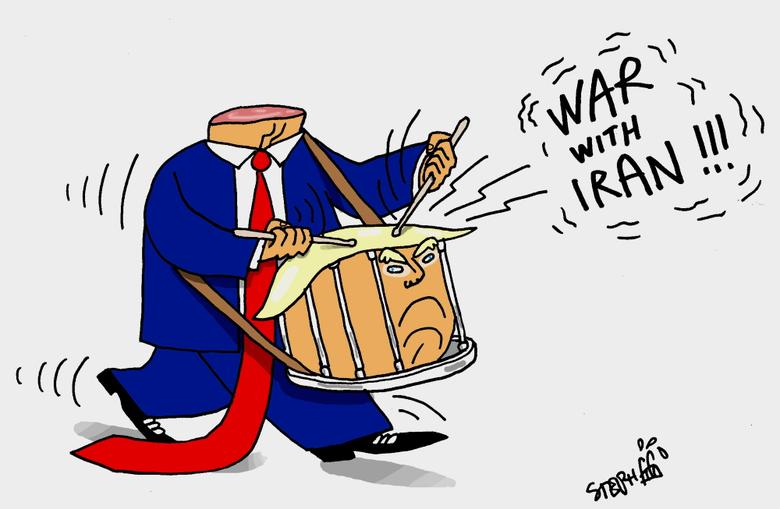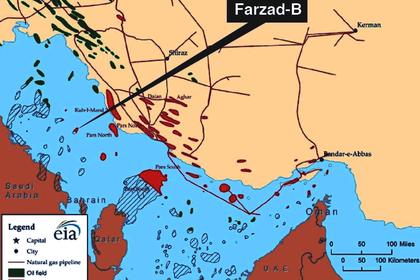
U.S., IRAN SANCTIONS: UNLAWFUL

TEHERAN TIMES - October 20, 2020 - "The lifting of sanctions is an essential part of the JCPOA agreement," Stano tells the Tehran Times in an exclusive interview. Stano points to EU foreign policy chief Josep Borrell's remarks in a debate in the European Parliament on 7 October in which he said, "Iran had legitimate expectations that the ‘nuclear deal’ would result in more concrete economic benefits."
The following is the text of the interview:
Q: What is the EU's position on U.S. extraterritorial sanctions and unilateral restrictive measures against Iran? What are the implications of U.S. withdrawal from the nuclear deal for the world?
A: The EU considers the extraterritorial application of unilateral restrictive measures unlawful and contrary to international law. We have said many times that we regret the unilateral withdrawal of the U.S. from the JCPOA and the subsequent re-imposition of previously lifted U.S. sanctions. The EU remains fully committed to the full and effective implementation of the JCPOA by all participants.
The lifting of sanctions is an essential part of the JCPOA agreement. In this regard, the EU fulfilled its commitments and lifted all its economic and financial sanctions in connection with the Iranian nuclear program. Furthermore, the EU member states sitting in the UN Security Council prevented the U.S. efforts to use the so-called "snapback" and re-introduce UN sanctions that were lifted as a result of the JCPOA.
Q: Is it enough to just issue statements against U.S. moves against Iran? Officials in Tehran say that Iran needs trade relations on the ground, not just condemnation on the paper.
A: The High Representative of the EU for Foreign Policy Josep Borrell, who acts as the coordinator of the JCPOA, said in the debate of the European parliament last week (on 7 October) that Iran had legitimate expectations that the "nuclear deal" would result in more concrete economic benefits.
The EU has taken a series of concrete actions to continue enabling legitimate trade with Iran. The EU updated its Blocking Statute in August 2018 to provide legal protection to European companies that are interested in doing legitimate business with Iran. The EU has also supported the setting up of INSTEX (Instrument in Support of Trade Exchanges) and helped to make it operational. As part of the EU's ongoing efforts, the European Commission just launched two online platforms to support European economic operators, particularly Small and Medium-sized Enterprises (SMEs), to engage in legitimate trade with Iran. This underscores the continued EU commitment to the full and effective implementation of the JCPOA.
Q: What happened to INSTEX? The Iranian Foreign Ministry says that Europeans have not been able to fulfill even their smallest obligations within the JCPOA. It says that a simple and trivial issue like INSTEX was implemented at a worthless level after working on it for more than two years.
A: The EU remains fully committed to the full and effective implementation of the JCPOA, and the European participants deliver on their obligations. That is why INSTEX was created - it aims at facilitating legitimate trade with Iran to support the needs of the Iranian population. And it shows the commitment to make the JCPOA work. First transactions under INSTEX are being processed, and if you noted, the number of participants of INSTEX is not shrinking; quite to the contrary, there are more European countries joining, with more to follow.
Q: What are the latest developments of Brexit? Can Britain exit from EU successfully?
A: We certainly hope so. The UK has already left the EU. The Withdrawal Agreement sets out the conditions for the UK's withdrawal from the EU, and this Agreement and its Protocols must be fully and timely implemented. The EU and the UK are currently negotiating a future partnership. A negotiating round took place in Brussels on 2 October. One day later, the President of the European Commission Ursula von der Leyen spoke to the British Prime Minister B.Johnson. The leaders of the EU Member States discussed the latest developments in this regard on Thursday, 15 October, and confirmed that the transition period will end on 31 December 2020. The EU notes with concern that progress on the key issues of interest to the Union is still not sufficient for an agreement to be reached with the UK. The EU calls on the UK to make the necessary moves to make an agreement possible. At the same time, the EU is stepping up preparations at all levels and for all outcomes, including that of no agreement.
Q: What is your comment on the Turkish president's policies in the Mediterranean and disputes between Turkey and Greece?
A: The tensions in Eastern Mediterranean and continued escalation are a source of concern and continued discussions among the ministers of foreign affairs of the EU member states and at the highest level among the top leaders of all the EU member states. It was the case also this Friday, 16 October at their meeting in Brussels. The EU stated full solidarity with Greece and Cyprus, whose sovereignty and sovereign rights must be respected.
The EU has a strategic interest in a stable and secure environment in the Eastern Mediterranean and in the development of a cooperative and mutually beneficial relationship with Turkey.
All differences must be resolved through peaceful dialogue and in accordance with international law. The EU repeatedly called on Turkey to abstain from unilateral actions that are increasing tensions and are in breach of international law. The EU leaders recently deplored renewed unilateral and provocative actions by Turkey in the Eastern Mediterranean, including recent exploratory activities.
In case of continuous unilateral actions or provocations in breach of international law, the EU will use all the instruments and the options at its disposal in order to defend its interests and those of its Member States. The EU will continue to monitor developments closely and make appropriate decisions at the latest at its December meeting.
Q: In Iran, people and observers say that EU has failed to follow an independent policy in the face of the U.S. due to economic and security ties. How would you respond to this impression?
A: I am not sure where these "observers" and people take their information, but this is totally wrong. The EU has its own successful policies that bring benefits to the EU people and are independent of any third country. Our policies are determined by and depend only on all the 27 EU member states' decisions and on the principles of multilateralism. Just see some examples: the global fight against coronavirus – the EU is advocating a multilateral approach with full support for the WHO. The EU has not left the WHO. The EU did not leave a single UN body or its organization; the EU remains committed to the JCPOA, strongly supports the International Criminal Court, sticks to the climate targets under (the) Paris Agreement. These are areas where the U.S. follows its own policy, which is different from the EU policies. And if there are still doubts about how independent our policies are = just look at your own country: the U.S. has no dialogue with Iran and re-imposes sanctions, while the EU engages with Iran actively, is not reintroducing sanctions, and is looking for ways how to advance trade and provide humanitarian assistance even under these circumstances.
Q: What is EU's stance about the Saudi war in Yemen? Why doesn't the EU impose an arms embargo against Saudi Arabia because of the war crimes it is committing in Yemen?
A: The EU is in principle against any armed conflict and advocates solving disputes through engagement, dialogue, and negotiations, not through military confrontation. We are supporting the efforts of the UN special envoy to end the conflict in Yemen. We also continue to engage with all sides of the conflict and with regional actors in order to reach a nationwide ceasefire, adopting a set of economic and confidence-building measures and resuming political negotiations.
The EU expects the parties to endorse, as a matter of urgency, the UN special envoy's Joint Declaration, which paves the way for an inclusive political process. Meanwhile, the EU is assisting Yemenis, both in the north and south, through the funding of developmental projects and humanitarian aid delivery.
The decision to impose an EU arms embargo on a third country is for the EU member states to make unanimous. If there is no EU arms embargo in force, the decision whether to authorize or to deny an export or transit to a country remains with the EU member states' authorities. Over the last few weeks and months, we have seen examples of EU member states who are reviewing their weapons exports to Saudi Arabia. This is a national competence for each country.
-----
Earlier:













